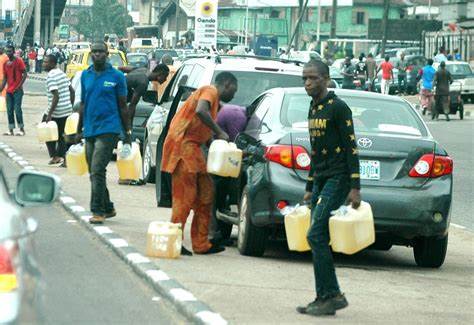Nigeria faces the threat of widespread fuel shortages as the Nigeria Union of Petroleum and Natural Gas Workers has ordered its tanker drivers to cease loading petroleum products from Dangote Refinery depots beginning Monday, September 8.
The directive, issued by NUPENG President Williams Akporeha and General Secretary Afolabi Olawale, stems from escalating tensions over alleged anti-labour practices by Dangote Refinery that the union claims threaten the survival and livelihoods of its members.
The conflict centers on Dangote Refinery’s reported policy requiring drivers recruited for its planned fleet of 10,000 compressed natural gas trucks to forfeit their right to join trade unions. NUPENG has condemned this requirement as a violation of constitutional rights and international labour standards.
According to the union’s statement, the dispute represents “an affront on the right of association guaranteed under the 1999 Constitution, and a breach of international labour laws to which Nigeria is a signatory.” The organization claims that multiple appeals to resolve the matter, including interventions through the Nigerian Association of Road Transport Owners, have been unsuccessful.
The situation intensified when MRS Holdings, allegedly owned by Dangote’s cousin Alhaji Sayyu Dantata, began recruiting drivers on August 29 under conditions requiring them to sign agreements prohibiting union membership. NUPENG characterized these recruitment practices as attempts at “modern-day enslavement of Nigerian workers.”
Union leadership expressed frustration that efforts to engage relevant government institutions to compel both Aliko Dangote and his cousin to adopt international best practices have proven fruitless. The organization accused the billionaires of creating “filthy wealth” by depriving workers of union representation and voice in workplace matters.
NUPENG reminded the public of its historical support for the Dangote Refinery during its construction phase, noting that the union had anticipated job creation, sectoral growth, and improved worker welfare. Instead, the organization now accuses Dangote of attempting to “monopolise distribution, crush competition, enslave the sector and raise prices,” describing these actions as economic sabotage rather than philanthropy.
The union has called upon the Nigerian Midstream and Downstream Petroleum Authority to exercise its regulatory powers under Section 32 of the Petroleum Industry Act to address what it considers abuse of market dominance and restrictive business practices. NUPENG emphasized that the right to unionize is protected under Section 40 of Nigeria’s 1999 Constitution and International Labour Organization Convention No. 87, which Nigeria ratified in 1960.
Warning of potential nationwide mobilization if the dispute remains unresolved, NUPENG stated that its tanker driver members would begin seeking alternative employment opportunities starting Monday. The union appealed for public understanding regarding any inconveniences that may arise from the impending action, framing their response as resistance against “tyranny and indecency.”
The standoff threatens to disrupt petroleum product distribution across Nigeria, potentially triggering fuel scarcity at a time when the country is working to stabilize its energy sector. The outcome of this labor dispute could have significant implications for both fuel availability and the broader relationship between organized labor and major industrial operators in Nigeria.



















